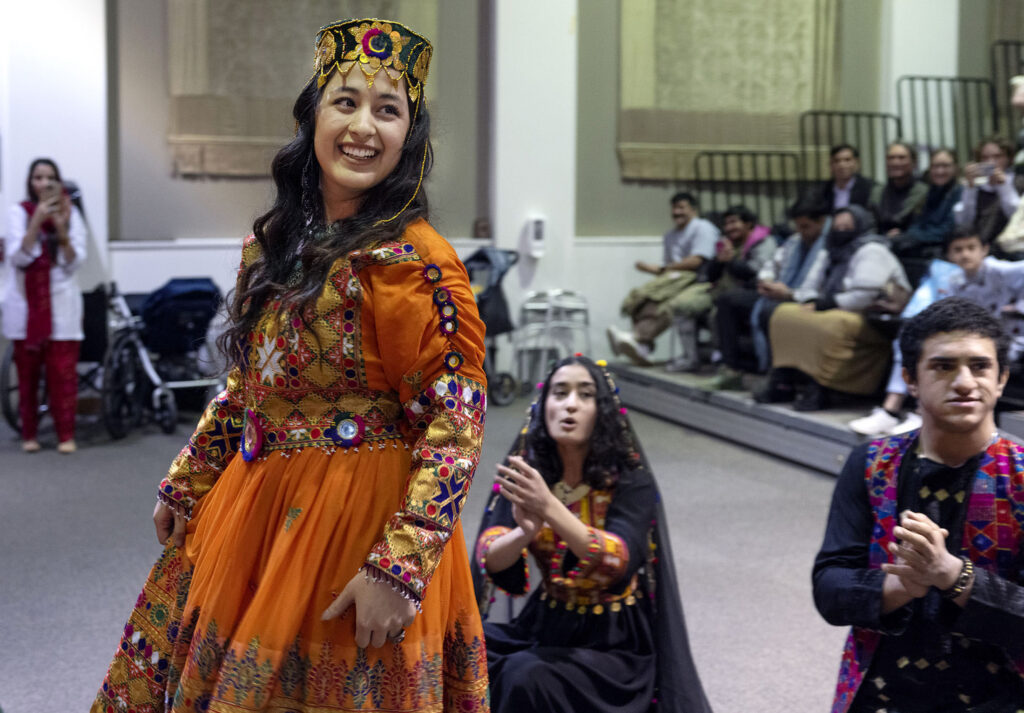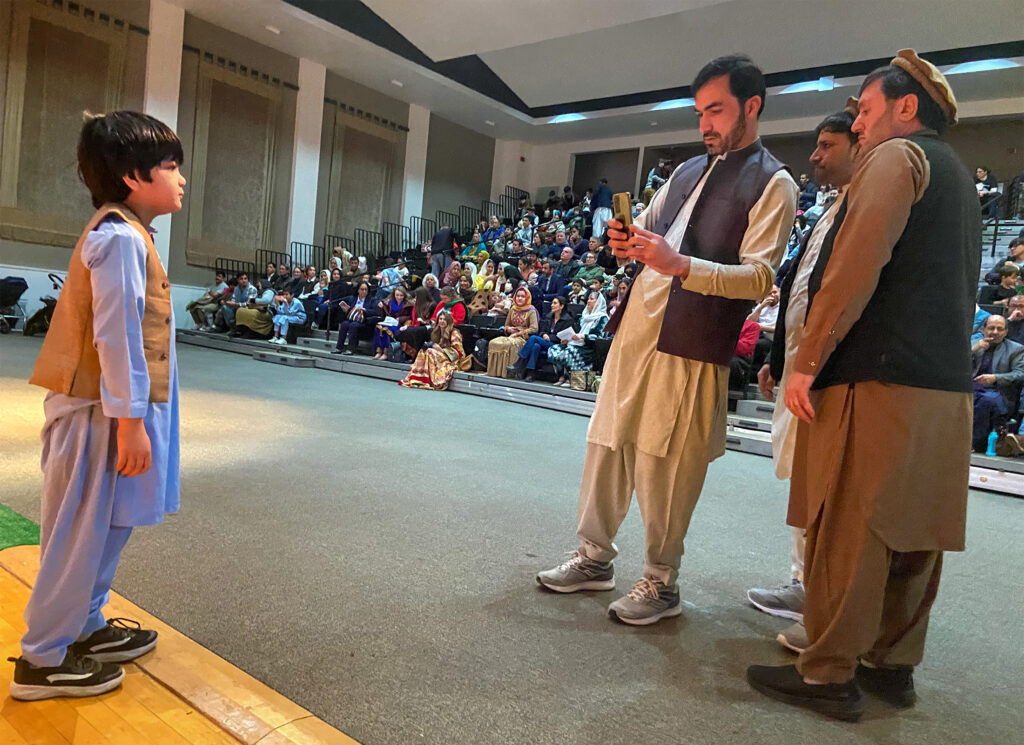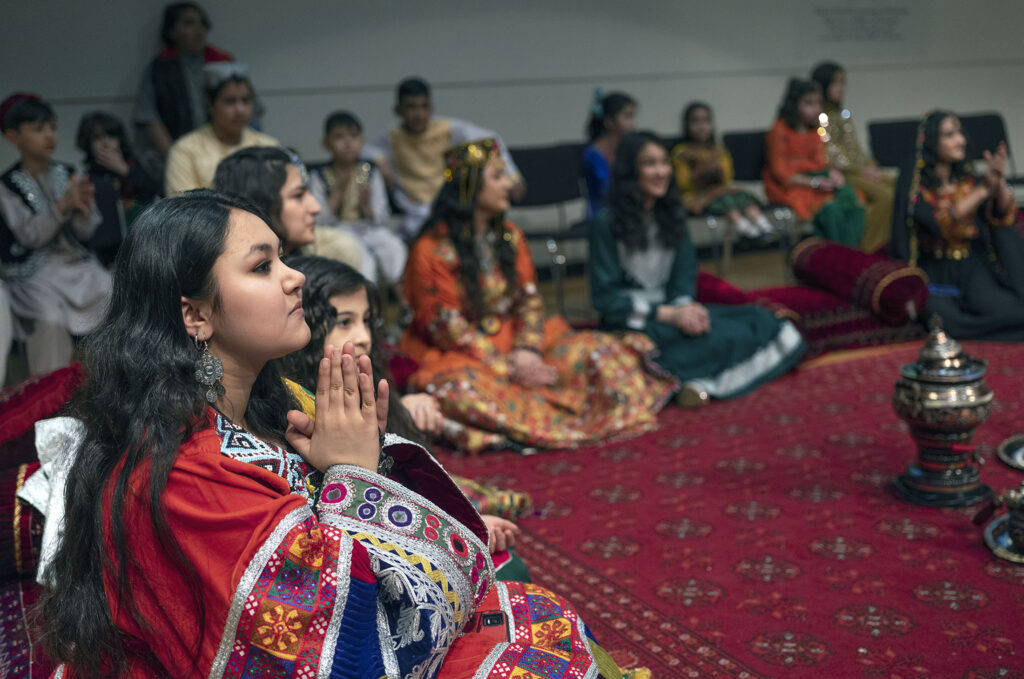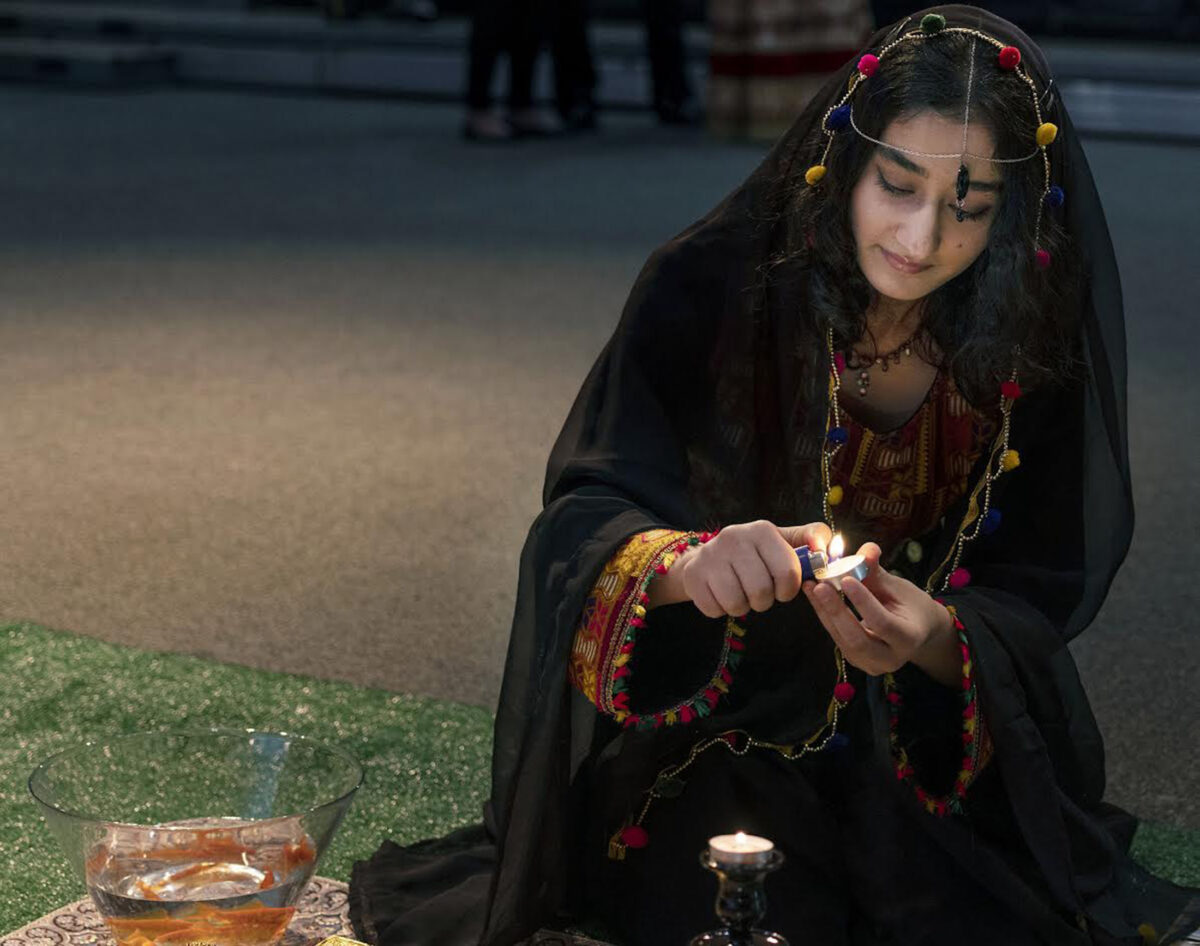Before he told the story that would bring him chills, Zubair Babakarkhail stood among people exuding warmth.
Women nearby greeted each other with hugs. Teenage girls laughed as they fussed over their brightly colored costumes. Men walked past carrying containers of Afghan food — beef- and onion-filled dumplings called mantu, cooked spinach, three different kinds of rice, stuffed pastries called samosa. Young presenters dutifully practiced their scripts.
Within moments, everyone would enter the Jewish Community Center of Greater Pittsburgh’s Katz Theater to celebrate Nowruz, a traditional Afghan celebration of spring. This celebration was made even more special by the fact that it was the first event organized by the newly formed Afghan Friendship Association.

In midst of all the affection and enthusiasm, Babakarkhail paused to describe the terrifying chaos he experienced during the stunning collapse of the Afghan government less than 20 months ago.
On Aug. 12, 2021, a photojournalist for the military newspaper Stars and Stripes asked Babakarkhail to accompany him to the Kabul Zoo. Babakarkhail had for years worked as a Stars and Stripes reporter and guide for foreign journalists. Reporting in Afghanistan was a dangerous gig. Babakarkhail grew up in a time of war, knew the country well and could help journalists avoid trouble. In addition to Stars and Stripes, he worked for news organizations such as USA Today, the Daily Telegraph in London, and Al Jazeera English.
At the Kabul Zoo, Babakarkhail and his photojournalist colleague observed some of the animals, including monkeys, flamingos and a white lion. But Babakarkhail also kept an eye on the people around him. He sensed something was wrong. Taliban fighters had been advancing on the city, and Babakarkhail sensed tumultuous change would arrive sooner than anyone had anticipated.
He turned to the photographer. “I think the wind has blown,” Babakarkhail said to him. Then he told the photographer it would be a good idea to leave the country.
The next day he drove his Stars and Stripes colleagues to the U.S. Embassy so they could begin their exit, then went to a bank to withdraw his money. That proved impossible. “It was like a riot there,” he said.
Two days later, on Aug. 15, Kabul fell to the Taliban. Babakarkhail, along with his wife, Fatima, and their three children, found themselves trapped in a country governed by people they feared. The safest passage out of the country was through Kabul’s Hamid Karzai International Airport, which remained under the control of NATO and the U.S. military.
“For the next 10 days we tried our best to go to the airport and get inside,” he said. But there was a problem. Thousands of other Afghans desperate to leave the country had the same idea. Kabul’s streets were gridlocked. Bedlam reigned at the airport. Thousands of people crowded the tarmac. U.S. military helicopters hovered overhead. American soldiers deployed smoke grenades and fired warning shots into the air in an attempt to dissuade people from attempting to forcibly board aircraft.
“I was getting calls from my colleagues in the military to just come to the gate and we’ll pull you in,” Babakarkhail said. “But it was impossible to get within 300 meters of the gate because of the crowd. People died out there. I didn’t want my children to die there.”
On the 10th day, Babakarkhail and his family hustled through a secure gate, and thus began a journey that would eventually take them to Pittsburgh. They traveled first to a refugee camp in Qatar, then to Germany before landing in the United States.
As people on Sunday began filing into the Katz Theater to celebrate Nowruz, Babakarkhail reflected on the changes that his family has experienced since Kabul’s fall. “We have a good life now,” he said. He’s got a job as a cultural navigator for Jewish Family and Community Services, and he and his wife have added another child to their family.
A few feet away, Hemmatullah Misaq Mohammadi posed for a photograph with a friend. Mohammadi — his friends call him Misaq — and his wife, Zainab, organized the Afghan Friendship Association a short time ago, then rushed to put together Sunday’s celebration.
“It has been a month,” he said. “I’ve not been sleeping. I’ve been working day and night.”
The AFA is an outgrowth of the refugee support groups he and Zainab are leading. “Afghans have been in Pittsburgh for almost a decade, but there wasn’t any community, any association to reunite Afghans and to help them to connect with their American friends and work together for peace,” he said.

In Afghanistan, Misaq Mohammadi worked as a television news anchor and as a manager and anti-corruption expert in the administrative office of Afghan President Ashraf Ghani. Zainab worked as a pharmacist, a technologist in a hospital and as a teacher.
“As a journalist and a person working for the government and as a social activist, I tried my best to promote human values, democratic values, and to help the Afghan people, especially women, to live in peace and to enjoy their freedom,” Misaq said of his time in Afghanistan. “Unfortunately, everything turned to ashes overnight.”
The Mohammadis, their two children and two nephews fled Afghanistan in September 2021. Zaina was eight months pregnant at the time — she’d give birth to a daughter in the United States.
A main goal of AFA is to foster relationships among Afghans, Afghan Americans and Americans, Misaq Mohammadi said, but the organization won’t stop there. “We want to serve not only Afghans but all the refugees in Pittsburgh,” he said.
Sunday’s event began with the playing of both the Afghan and American national anthems, and included traditional Afghan dancing, music and food. Such celebrations are especially important for immigrant communities, said Babakarkhail.
“I tell people I’m Afghan,” he said. “But unless I show them my culture at events such as this, they’ll not fully understand who I am.”

Steve is a photojournalist and writer for the Pittsburgh Post-Gazette, but he is currently on strike and working as a Union Progress co-editor. Reach him at smellon@unionprogress.com.



